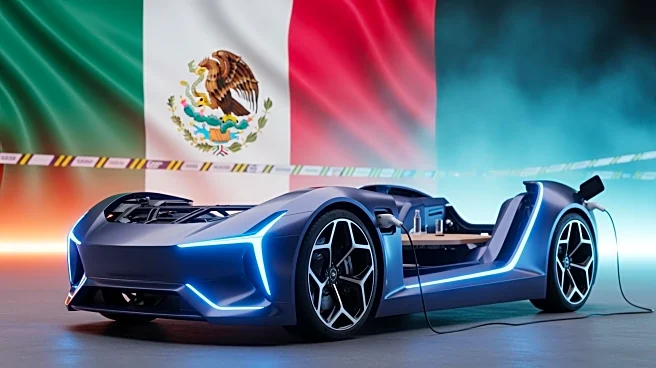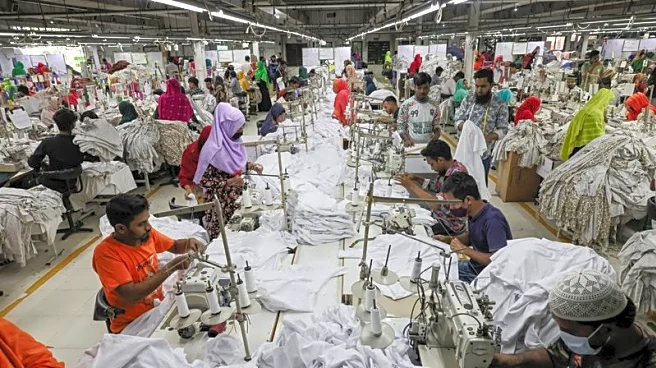What's Happening?
Mexico is advancing its efforts to produce affordable electric vehicles (EVs) domestically, with President Claudia Sheinbaum spearheading the initiative. The project, named Olinia, aims to make EVs accessible to the general public, aligning with Mexico's
climate change goals. The government plans to build multiple manufacturing facilities, including one in Sonora, to produce these ultra-compact EVs. The base price for the Olinia cars is expected to be between 90,000-150,000 Mexican pesos, approximately $4,400 to $7,300. This initiative is part of Mexico's broader strategy to reduce greenhouse gas emissions by 35% by 2030 and achieve net-zero emissions by 2050.
Why It's Important?
Mexico's push to manufacture affordable EVs domestically is significant for several reasons. It supports the country's commitment to sustainability and energy independence, potentially reducing reliance on foreign automotive imports. The initiative could stimulate economic growth by creating jobs in the manufacturing sector and fostering technological innovation. Additionally, increasing the availability of EVs can contribute to environmental conservation efforts by reducing carbon emissions and promoting cleaner transportation options. This move positions Mexico as a leader in the Latin American EV market, potentially influencing other countries in the region to adopt similar strategies.
What's Next?
The official design of the Olinia cars will be unveiled next month, with the debut scheduled for the 2026 World Cup. As the project progresses, Mexico may see increased investment in EV infrastructure, such as charging stations, to support the widespread adoption of electric vehicles. The government may also implement policies to incentivize EV purchases, further driving consumer interest. The success of this initiative could lead to collaborations with international automotive companies and technological partnerships to enhance production capabilities.
Beyond the Headlines
Mexico's focus on electric vehicles reflects a global trend towards sustainable transportation solutions. The initiative highlights the intersection of technology, environmental policy, and economic development, showcasing how countries can leverage innovation to address climate change. It also raises questions about the future of the automotive industry and the role of government in facilitating technological advancements. As Mexico pursues its climate goals, the initiative may inspire other nations to prioritize sustainability in their economic strategies.


















